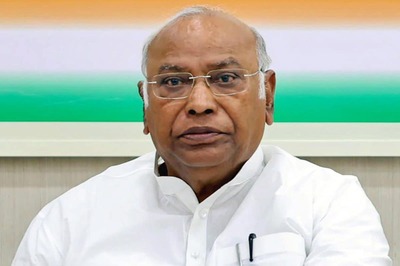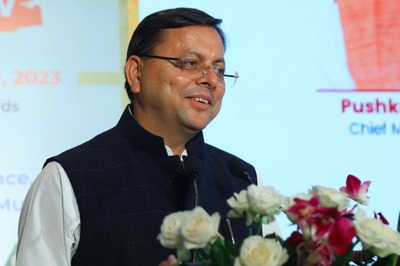
views
THIRUVANATHAPURAM: You can love them or you can hate them, but there will be hardly anyone who would not have heard of Mills and Boon books, companions to millions of women, especially during the growing up years. Clare Somerville, General Manager India, UK and Export Sales, Mills and Boon, was at Kovalam during the weekend. Here is Clare in conversation with City Express: Q: There has always been the criticism that M and B books always had women in an inferior and dependent role, with her world spinning on the axis of a dominant male. A: Yes, there was a time when the heroines were at the beck and call of the hero, who was a dominant force. But now the books are more in line with the contemporary woman, who is no longer subservient, but more forceful and independent. And the woman agrees to a life-long relationship only after the man is made to realise the equality in partnerships. Q: While it’s generally said that you have hundreds of women authors, there has been these silent rumours that most of them are written by men and given a feminine name. How true is this? A: (laughs out aloud) Well, actually, we have only one male author, the rest are all female. It’s women writing for women and the stories are from a woman’s perspective. Q: Can you name some of your best-selling authors and are you looking for writers from India?A: Penny Jordan, she sold 80 million copies worldwide. Carol Mortimer and Violet Winspear were very popular too. Some of their books were made into films. Yes, we are looking for writers from India to get a local flavour and we have been conducting annual writing competitions. We had published a book by Milan Vohra last December and will be publishing another by Asta Atrey next December, both winners of the competition. The next one will be held in September. Q: With technological advances such as the internet and mobile phones, romance has changed over the years. How has it changed the Mills and Boon books, for example how can you now explain the hero not getting in touch with heroine for many years, as it often happens in M and B? A: The Mills and Boon romances are more about face to face engagements and many of them would not have happened if they had mobile phones. There was a film that I remember where the hero waits on the roof of the Empire State Building for his woman, but she never turns up. What had happened was she met with an accident, which the man found out nearly a decade later. If they had mobile phones, the film could never have been made. Q: Did you read Mills and Boon as a teenager and if you did, do you remember your first book? A: Oh yes, I think I was 12 or 13 then and I used to share these books with a group of students. The first one I read had the hero from a Greek Island. The pair got married, but there was some misunderstanding and they separated, to unite later. But the setting was a Grecian palatial villa and the hero was dusky and I thought how exotic (laughs). Born in Kolkata, Clare’s parents worked in India and they lived right next to Jinnah’s house. Clare, who returned to UK when she was three, initiated her career at Penguin Books, and subsequently worked for several other publishing houses, including HarperCollins, Random House, Egmont and Hachette before joining Harlequin Mills and Boon in 2005. In the year 2009, Clare was the recipient of the highly-commended Women in Publishing Award for Innovation in the industry.




















Comments
0 comment